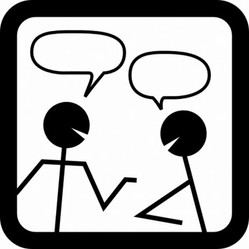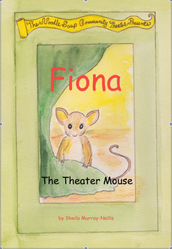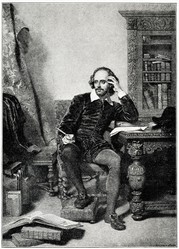Writing realistic character dialogue doesn't have to be hard. All writers have to do is know their characters very well, and get into their characters' heads and story world. Another good thing to do is to evaluate the random conversations of people around you in public places and take notes on different things that you hear them say. Listen to their dialect, their accents, and the differences between them. People in real life talk differently and so should your characters in your story.
- Tip #1: Be sure that your characters' actions and dialogue match their personalities.
For example, shy characters shouldn't speak as much as outgoing characters within the story.
My character Demetrius is an introvert, and Jessica is an extrovert. Here is an example of the differences between characters personalities from a scene I wrote for one of my novels:
Demetrius angled his head and started fiddling his hands with the sugar shaker on the table, barely looking up at Jessica.
“I asked you here… so we could talk,” Jessica said, breaking the silence.
“Talk about what?” Demetrius said, staring at the white grains in the jar.
“You know, you and me?” Jessica said harmlessly.
Demetrius blinked his eyes and timidly glanced up and down at her face.
There was a time that he could easily make direct eye contact with Jessica without any problem, but lately he had trouble with it. She wasn’t the tomboy she used to be anymore, at least not in her outward appearance. Things had taken a new turn. He had no control over what was changing inside of him, and for the first time ever he saw Jessica for what she actually was…a woman, and not just his friend. But he wasn’t right for her, it could never work.
Jessica stirred her straw in her drink again. “There’s something I was meaning to ask you. I…” She hesitated and placed her hands on the table, angling her head. “You’ve been acting differently around me lately. It kind of makes me suspicious.”
“What do you mean?” Demetrius said.
“Well, for one thing you don’t look me in the eye very much,” Jessica remarked.
Startled by her comment, Demetrius quickly raised his head and looked in her eyes, trying to prove a point. His back muscles and shoulders tensed up, like he had a board taped to his spine. He squirmed on the booth seat. Jessica hinted an amused smile, chuckling. Demetrius was so sweet and endearing that she couldn’t describe him in words.
“Are you okay?” she asked, arching her eyebrow.
“Sure, I’m fine,” he said with a nervous smile.
Jessica sipped some soda from her glass. “About what I wanted to ask, I…” Her mouth remained open for a second, but no words came out. Apparently, she was as edgy about the situation as Demetrius, only it didn’t show through as much.
“Do you love me?” Jessica suddenly asked, blurting out her question.
“No,” Demetrius quickly responded. His heart skipped beats, staring at her disappointed expression. ”…at least not romantically. I mean, you’re like a sister to me,” he added.
Jessica became quiet and sadly looked down. “Oh, that’s too bad because…”
“I love you,” she said with a small smile, placing her soft, warm hand over his on the table. Her touch caused a shivery sensation to run through his body. He felt like he was wrapped in an electric blanket like the time when he was a kid sick with the measles.
Demetrius gulped, lovingly gazing in her radiant, copper brown eyes that reflected a ray of sunlight, beaming through the side window. You have really pretty eyes, he thought. His cheeks blushed and his heart thumped so hard he thought it would burst out his chest.
As you can see, based on Demetrius' dialogue and actions, he is quite shy about expressing his feelings for Jessica, whereas Jessica, though hesitant, comes out and admits her feelings for him. This alone is an example of the differences between two characters, and how body language can be a kind of dialogue to express your characters too.
- Tip #2: Character dialogue should tell more about your characters and their relationships with others as your story progresses.
- Tip#3: Dialogue is a good way to "Show not Tell" and should increase the tension of your story.
- Tip#4: Dialogue can help your readers understand your characters and their emotions.




 Characterization: Setting is a character tooon 09/22/2014
Characterization: Setting is a character tooon 09/22/2014
 Characterization: Character Emotionon 09/18/2014
Characterization: Character Emotionon 09/18/2014
 Characterization: Types of Characterson 09/15/2014
Characterization: Types of Characterson 09/15/2014
 The Stages of a Storyon 09/12/2014
The Stages of a Storyon 09/12/2014


Comments